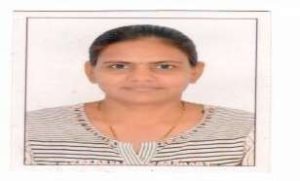Admission Open for MSW (Master of Social Work)
Admission Poster and Notice for MSW 2023
Notice and Instruction MSW Online CET on 12th July 2022
Admission Notice for MSW 2022-23
MASTER OF SOCIAL WORK (ADMISSION – 2022- 23) SCHEDULE AND INSTRUCTION
Instruction MSW 2022
Admission Notice for MSW 2022
MSW-MCQs Sample
About
The Master of Social Work (MSW) Programme started in the academic year 2016-17 to set a milestone in the history of Social Work education in the University of Mumbai. It was a response to the crucial need for professional Social Work intervention in the state and in the country. We are proud that our students, trained in the highest values of the profession will be contributing toward fulfilling that need.
The MSW program addresses the traditional areas of Social Work and also includes the new advances from the field into the curriculum. The pedagogy is a fine balance of theory and field-based practice with an underlying emphasis on inclusivity in social and economic justice. The focus is on nurturing creativity while encouraging diversity.
We have always sought to offer an academically enriching environment for students who share our commitment to serve the most marginalized and the underprivileged.
Contact
Department of Social Work
Rajiv Gandhi Centre,
Near Sanskrit Bhawan, Kalina Campus
Vidyanagari, Santakruz (E) 400098.
Phone: 022-26532048
Email: office.msw@mu.ac.in, mswmu2016@gmail.com,
The Nature of the Course
The university provides a generic course of studies at the MSW level. The Choice Based Credit System (CBCS) is followed. The curriculum is carefully designed to ensure that the student has a broad base of the necessary knowledge, skills and attitudes to function in diverse field of Social Work settings. Despite being generic, the course also encourages the students to deepen their interest in certain specific areas through the type of fieldwork selected, research study undertaken, term paper topic chosen and optional subjects selected as electives. Full time and visiting faculties will teach courses (papers) according to their specialisations. The curriculum consists of relevant aspects of both theory and field work to help students enhance their practical understanding of social work practice. Theoretical perspectives provided in the programmes hope to achieve the following objectives:
- Acquire knowledge of the functioning of individuals and groups in social systems, the interrelationships between them and the manner in which they promote or impede a healthy social functioning,
- Obtain knowledge from other disciplines which contribute to the understanding of persons in the bio-psycho-social matrix,
- Develop professional capacity for identification of issues and problems violating the human rights of groups and communities and design effective responses for affecting a meaningful change in their situation,
- Attain the capacity to select and order priorities, to plan, to make realistic goals, and select appropriate strategies to fulfil the goals,
- Develop skills in the utilization of social work intervention methods and adopt ethical practices using the principles of the profession while working with individuals and families, groups and communities.
The course is full time and requires rigorous field work. The total number of credits earned by the learner on successful completion of the MSW course is 96 credits. It is offered under the Faculty of Arts.
Field Work
Field Work is an integral part of the programme of training in social work. It comprises learning professional social work practice under the guidance of trained field instructors in selected Government and Non- Government organizations. It enables the student to see the applicability of theoretical knowledge taught in the classroom to actual situations requiring social work intervention. It is both goal-oriented to solve a particular problem to which the student addresses his / her activities and learner-centred in relation to his / her particular interest areas and aptitudes. Field work has the dual purpose of promoting the student’s own learning while contributing to the development of the people with whom he / she works, especially the disadvantaged sections of our society. Currently the department is associated with more than 35 Government and Non-Governmental Organizations.
Practical experience in fieldwork aims at the following objectives:
- Provide opportunity for the integration of classroom learning and field practice and vice-versa (feedback mechanism for both class and field),
- Develop skills through learning how to utilize the knowledge learnt in the classroom for analysis of problems affecting the target groups and selection of the appropriate means for problem-solving,
- Cultivate attitudes, values and commitments of the profession relevant to working with the most disadvantaged sections of society,
- Develop awareness of self and the way in which student’s behaviour is affected by past experiences and cultural factors, and the way in which these affect the perceptions of their response to others.
Students will be required to maintain regular recordings of the fieldwork done during the course of their study. All students are required to dress appropriately, giving due respect to the socio-cultural practices of the people whom they work with while at fieldwork.
For the field work students will be placed at various Agencies in urban, rural and tribal areas. A few Tribal, Nomadic Tribal and Urban Slums will be selected for field action project by the Programme where student have to regularly contribute for the development of the Communities.
Fee Structure
| A. University Prescribed | MSW Ist Year | MSW IInd Year |
| Admission Form | 100 | 100 |
| Admission Processing | 200 | 200 |
| Tuition Fees * | 30,000 | 30,000 |
| Exam Fees | 600 | 600 |
| Mark sheet | 50 | 50 |
| Gymkhana Fees | 200 | 200 |
| Library Fees | 1000 | 1000 |
| Eligibility Fees | 250 | 0 |
| Enrolment Fees | 220 | 0 |
| Development Fees | 500 | 500 |
| Dissertation Fees/Project Fee | 0 | 1000 |
| Convocation Fees | 0 | 250 |
| Registration Fees | 1025 | 0 |
| Field Agency Visit/Rural Camp/ Internship* | 5000 | 5000 |
| Other Fees | 250 | 250 |
| E-Suvida | 50 | 50 |
| E-Charges | 20 | 20 |
| Computer Internet | 500 | 500 |
| Student Welfare Fund | 50 | 50 |
| ID Card | 50 | 50 |
| Group Insurance | 40 | 40 |
| University of Mumbai
Sports & Cultural Activity |
30 | 30 |
| Caution Money | 150 | 150 |
| Disaster Relief Fund | 30 | 30 |
| Library Deposit | 250 | 250 |
| Vice Chancellor Fund | 20 | 20 |
| Magazine fees | 100 | 100 |
| Utility Fees | 250 | 250 |
| Document Verification | 400 | 0 |
| Total Rs. | 41,335 | 40,690 |
Syllabus
| Semester | Course Code | Core Course | No of credits |
| I | C1 | History, Philosophy and Practice of Social Work | 4
|
| C2 | Work with Individuals and Families | 4
|
|
| C3 | Social Welfare Administration | 4
|
|
| C4 | Community Organisation | 4
|
|
| C5 | Introduction to Social Sciences -1 | 4
|
|
| Core course practical-I | Fieldwork (practical component related to core subjects) | 4
|
|
| Total Credits for Semester-I | 24
|
||
| II | C6 | Research Methodology | 4 |
| C7 | Contemporary Social Movements | 4 | |
| C8 | Work with Groups | 4 | |
| C9 | Social Policy and Planning | 4
|
|
| C10 | Introduction to Social Sciences -2 | 4 | |
| Core course practical-II | Fieldwork (practical component related to core subjects) | 4
|
|
| Total Credits for Semester-II | 24
|
||
| Semester
III |
Elective basket-1
Credit -4
(choose any one) |
Elective basket- II
Credit-4 ( choose any one ) |
Elective
Basket III Credit-4 ( choose any one ) |
Elective Basket –IV
Credit-6 ( Skill workshop component) ( choose any one ) |
Elective Basket –V
Field work Practicum Credit-6 Internal evaluation( choose any one ) |
| i) Gender
Studies |
i) Health
|
i) Mental
Health |
i) Therapeutic
Counselling skills |
i) Institutional
setting |
|
|
ii) Teaching, Training and Supervision
|
ii)
Social Exclusion and Inclusion |
ii) Informal
labour and Informal sector |
ii) Rural and
Urban Studies
|
ii) Community
Setting |
|
| iii) Child rights
|
iii)Working
with Disabilities |
iv) Gerontology and geriatric
care |
iii) Development Communication Skills | iii) Issue based
Setting |
|
| Total Credits | 24 | ||||
| Semester
IV |
Project based course-1
Credits-8 |
Project based course-1I
Credits-6
|
Optional Choices
Basket-1 Credits-6 ( Skill workshop component) Choose any one |
Optional Choice Basket –II
Inter disciplinary Credits-4
|
|
|
Research project with dissertation |
Field work based Project
|
i)
Skills in Management of Non-Profit Organisation |
i)
Gender, sexuality and relationships |
||
| ii) Sustainable development and environment | ii) Disaster Management | ||||
| Total credits | 24 | . |
CONFERENCES/SEMINARS/WORKSHOPS
- National Conference on “Contemporary Indian Society and Social Work Practice” on 20th – 21st February 2020.
- Two Days Interdisciplinary Workshop Research Methodology for Social Sciences 07th & 08th September 2018.
- State Level Seminar on ‘Social Movements in India and its Contemporary Relevance’ in 2017
The Job Placement Cell proactively seek to identify jobs for graduating students by inviting representatives from the Governmental, Non-Governmental and Private Sectors at the local, national and international levels to conduct Campus Recruitment at the end of the academic year.
Faculty Profile



